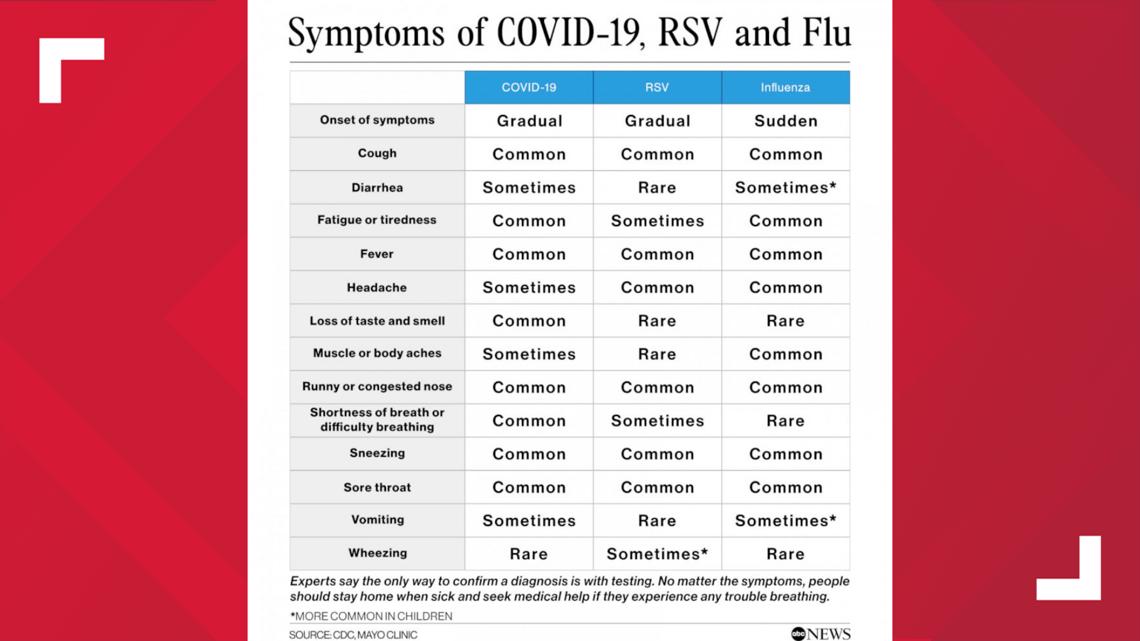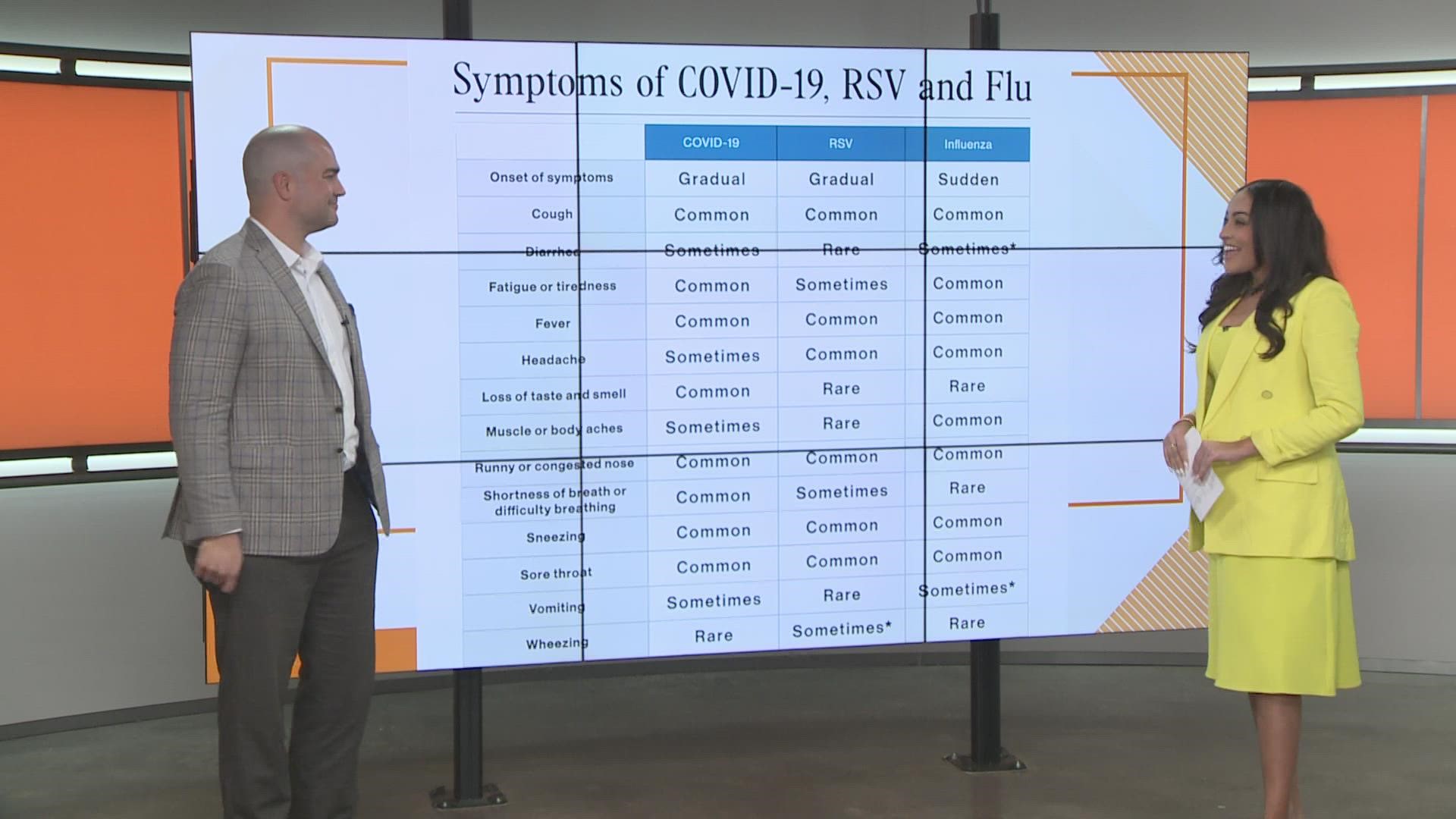AUSTIN, Texas — As students and adults around Central Texas return to the classroom and office, they could have a case of the sniffles for a number of reasons.
According to the Centers for Disease Control and Prevention (CDC), respiratory illnesses are popping up earlier – and in more people – than in recent years. Health experts have used the term "tripledemic" to explain the overlapping rise in flu, COVID-19 and RSV cases.
All three viruses have similar symptoms, which can make them more difficult to tell apart. Dr. Mason Mileur, an internal medicine doctor and head of Austin Medical Associates, said that losing your sense of smell and taste is going to be a key indicator that you likely have COVID-19.


When it comes to checking if a child has RSV, listen for wheezing. If a child starts wheezing, it's a key indicator they could have RSV and that should bring a little more concern.
"For RSV, always worry about it for kids that are less than six months old or have some sort of prematurity or some other condition. But as adults, you know, we get RSV, all the time," Mileur said. "Now, as adults, if you're less than the age of 65 and healthy, honestly, you really shouldn't worry about any of things in terms of mortality. But once you start crossing over the age of 65 and started accumulating a little bit more medical conditions, most commonly affecting your lungs and heart, that's when you begin to worry a little bit more about COVID-19."
Other pesky symptoms that have come into play more recently include loss of smell, stuffy nose and scratchy throat. These symptoms could indicate COVID-19 or RSV, but it could also just be from cedar fever, which is an allergic reaction to the high cedar count in Central Texas.
"Ways to tell if you have cedar fever or not is tricky because sometimes you can get a little bit of a low-grade fever, the sniffles and the itchy eyes. The big difference though is, you know, COVID-19 can take away your sense of smell. Certainly when you have bad allergies, your sense of smell can go away too, so it's kind of tough. But COVID-19 does have an abrupt kind of losses since it's a lot of times associated," Mileur said.
In his line of work, Mileur receives a lot of calls from patients saying they're sick and don't know what they need to be worried about when it comes to the symptoms they're experiencing.
"The best thing to do is just call your doctor. Talk it over with them, to start to determine if you need to stay home or if you need to go to the hospital," Mileur said. "They can certainly help you make that decision."

